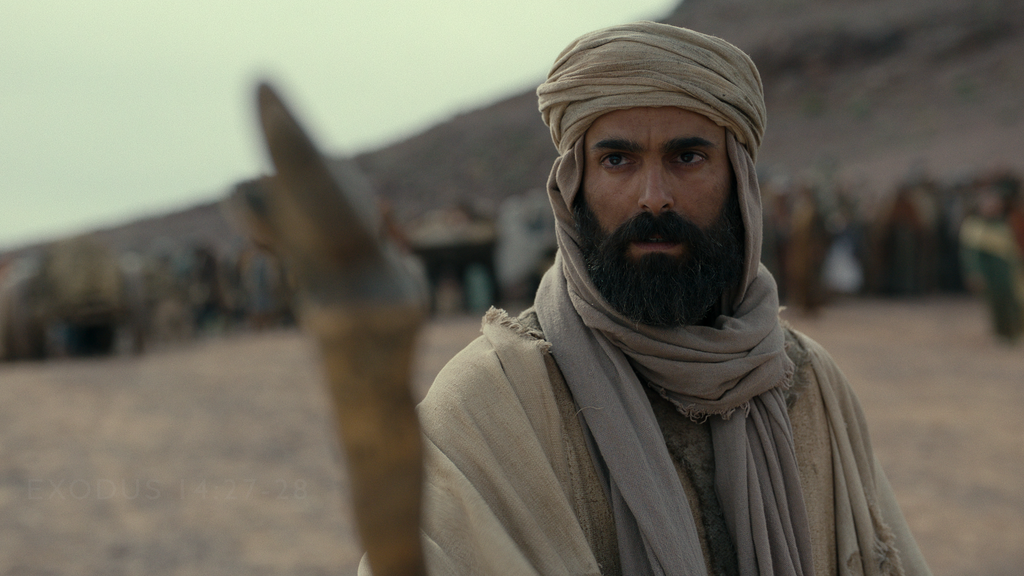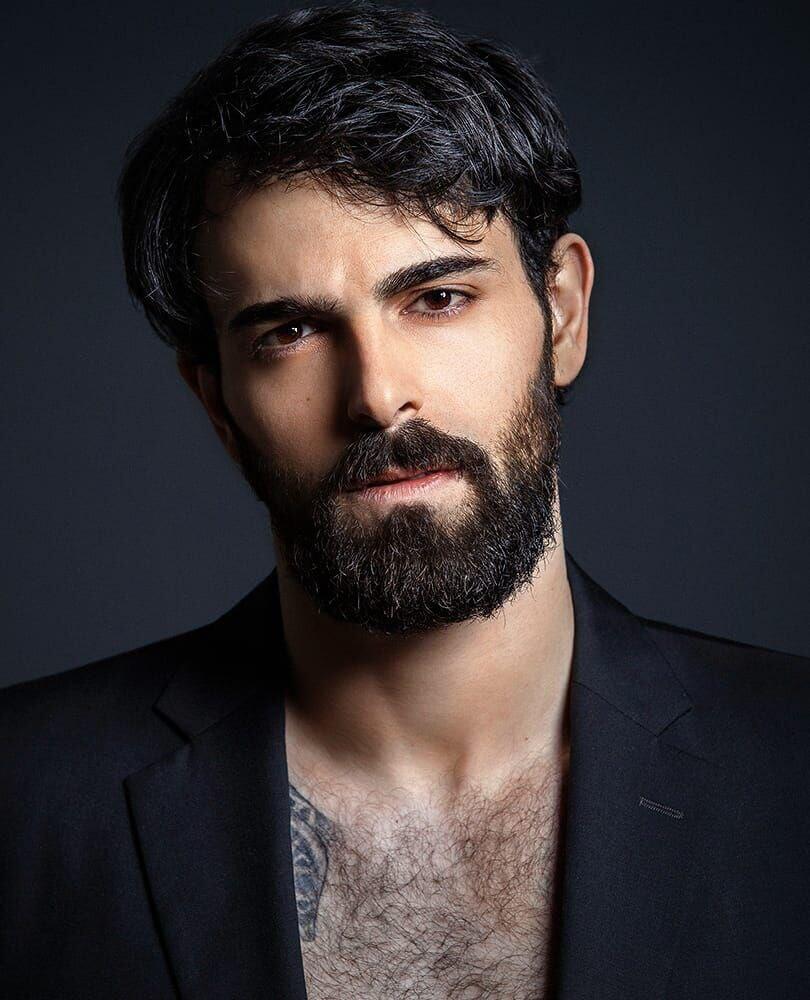Getting your Trinity Audio player ready...
Netflix recently released the much talked about "Testament: The Story of Moses" on its streaming service – a docudrama produced in Turkey that combines the biblical tale of Moses with interpretations from theologians and historians of various backgrounds.
The series, which features an Israeli cast including Reymond Amsalem, Ishai Golan and Avi Azulay, alongside international actors like Dominic Tipper ("The Expanse") and Charles Dance ("Game of Thrones," lending his voice to one of the episodes), quickly climbed to the top of the most-watched series list on the platform in Israel, holding the number one spot for a week.
"The feedback has been amazing and very moving," says Azulay, who portrays Moses, in an interview with Ynet about the unexpected success. "I'm not a well-known actor in Israel, and certainly not worldwide, and this is the first time I've taken on such a big and meaningful role," added Azulay, who primarily performs in the Gesher Theater and has appeared in several local film and television productions. "What excites me the most is receiving feedback from Arab countries that support and love the series – whether it's Jordan, Lebanon or Qatar. We are currently in first place in many countries worldwide, and it's simply heartwarming and immensely enjoyable. I am grateful for it."
What reactions do you get, for example, from Jordan and other Arab countries?
"'You are our prophet,' 'We love you,' 'an amazing role.' God forbid, I have not come across any comments about being Jewish or Israeli, which is lovely in my eyes and makes my heart and soul feel good. I suddenly feel that there is hope, it makes me feel good that there are people who see beyond."
Although Azulay testifies that he has not encountered negative reactions, social media is full of upset reactions about the inaccurate historical representation of the story and its characters, with many even claiming that it is "blasphemy." That is why the sympathetic responses he received are surprising in themselves - and even more surprising in view of the post-October 7 reality. "It surprised me very, very positively to see all the Arab countries supporting us, loving the series, respecting the players. Only really good things, from every direction. I receive around a thousand messages a day, not only from Arab countries of course - from all over the world, and as I said It really gives me hope."
So, you didn't feel that Netflix was trying to downplay the series?
"No. I was afraid of the reactions and everything, because of the Israeli ensemble, but it didn't bother me. We were number one for four consecutive days worldwide, now in second place, and we hope to stay there. There's something about this series, and I have received a lot of feedback about it, that it's particularly suitable for the situation we are in now. I received a lot of responses from Israelis because the message of the series is that we need to be together. There's a sentence in it that caught my attention very strongly: Before God parted the Red Sea and I (Moses) realized that we all need to be together, someone from the interviewees said that once we know how to be together, it means we will go together – that's where redemption lies. That's where God is found."
Azulay, born in Dimona, has been acting in Israel for years in various roles, in the Gesher Theater and also in local TV series. However, as he defines himself, he has not yet managed to break into the local scene. Now, he is still surprised that his big breakthrough came specifically on Netflix.
"It's really insane," he shares. "It's crazy; I couldn't handle it, and I'm still digesting it. I understand the magnitude of it now. At first, I had an anxiety attack because suddenly I realized how enormous it is. A quarter of an hour after the series aired, my Instagram exploded."
How did it all start?
"They asked me first if I could, because I'm a theater actor, and if it was even possible for me to film for three months in Morocco. I asked what it was about, they said they couldn't talk about it yet, that it was confidential. When they said it was a lead role on Netflix, of course, I said yes, and that we'd figure it out. I had six auditions, and I realized they had been searching here for a long time. Netflix insisted it had to be an Israeli actor and, in hindsight, I understood they had first started looking for actors in England. They gave me a very tight deadline, and I said I couldn't do all six auditions in that timeframe. I sent the first audition, and they called me within 10 minutes and said, 'We loved your audition.' The producer himself. An hour. He called me, and we talked for half an hour, I did another audition, and I got the role. I asked, 'Are you sure?'" he laughs, "and they said yes. I said to myself, 'Okay. It's you.' The director came to visit me after a few days, and he was lovely. I asked him, 'Why me?' and he said, 'Exactly because of that.'"
Exactly like Moses who asked 'Who am I that I should bring Israel out of Egypt', is that your connection point to the character?
"More or less, yes. And also a feeling of lack of belonging. What drives Moses in our series, what we delve into, is his lack of belonging. He feels he doesn't belong to Egypt, not to the children of Israel, not to any place, not to Midian, always feels like a stranger. And I can connect to that. As a child with glasses in Dimona, I felt somewhat unaccepted and odd, which probably led me to study acting. And even when I got to Tel Aviv, I was the guy from Dimona in Tel Aviv – 'maybe he's a thug' and 'what's he doing here' and 'what's he got to do with theater.' I always felt constantly out of place, and that's an important connection point to the character."
Trailer for 'Testament: The Story of Moses'
(Courtesy of Netflix)
And what about opportunities the role has opened up for you in the future, have you received any new offers?
"There are discussions. They're sending messages to my agent about all sorts of things; we still don't really know if it's something that's happening or not. I hope things happen and we continue forward, and that it will be successful."






